Navigating the world of medications can be challenging, with a myriad of choices and considerations for each individual.
Understanding the essence of medication therapy management (MTM) is crucial for anyone who regularly takes prescription drugs.
In this article, we’ll explore the various facets of MTM, from its definition to its importance in modern healthcare.
Our goal is to provide you with essential insights, making this complex topic accessible and practical for everyday use.
1. The Importance of Medication Therapy Management
Medication therapy management is a critical aspect of healthcare, primarily focusing on ensuring that patients’ medications are optimally chosen, dosed, and monitored. The importance of this process cannot be overstated, as it directly impacts patient health and safety.
One significant benefit of MTM is its ability to reduce the likelihood of medication errors, which are alarmingly common and can lead to severe complications or even fatalities. MTM also plays a vital role in managing chronic conditions, helping patients maintain stability in their treatment regimens, and preventing adverse drug interactions.
By taking a comprehensive approach to medication management, MTM supports not only the physical well-being of patients but also their mental and emotional health, as it reduces the stress and confusion associated with managing multiple medications.
2. Medication Therapy Management Explained
So, what is medication therapy management? At its core, MTM is a patient-centric approach to managing prescription medications. It involves a thorough review and management of a patient’s medication regimen, typically by a pharmacist or a healthcare professional.
This process is especially important for patients who are taking multiple medications, have chronic conditions, or are at risk for adverse drug reactions.
MTM ensures that each medication serves a purpose, is safe and effective for the patient, and does not negatively interact with other medications. The process often includes a detailed discussion with the patient about their medications, lifestyle, and health goals, ensuring that the prescribed drugs align well with their overall health plan.
3. Key Components of Medication Therapy Management
Medication therapy management consists of several key components that work together to enhance patient care. These include medication therapy reviews, personal medication records, medication-related action plans, intervention and referral services, and documentation and follow-up.
Each of these components plays a vital role in ensuring the effectiveness and safety of a patient’s medication regimen. For instance, medication therapy reviews help identify any potential drug interactions or side effects, while personal medication records provide a comprehensive view of a patient’s medication history.
Action plans are tailored to individual patient needs, offering clear steps to manage their medications effectively. Intervention and referral services are crucial in cases where a patient may need additional care or adjustments in their medication, and consistent documentation and follow-up ensure that the MTM process is dynamic and responsive to changes in the patient’s health status.
4. The Role of Healthcare Professionals in MTM
Healthcare professionals, particularly pharmacists, play a pivotal role in medication therapy management. Their expertise in pharmacology and patient care enables them to effectively manage and adjust medication regimens.
These professionals are trained to identify potential medication-related problems, such as ineffective therapy, adverse reactions, or unnecessary medications. They work closely with patients and their healthcare providers to ensure that medication regimens are tailored to the individual’s specific needs and health goals.
Their involvement is not limited to medication management; they also provide valuable education and counseling to patients, helping them understand the importance of medication adherence and how to manage potential side effects.
5. Benefits of Medication Therapy Management for Patients
The benefits of medication therapy management for patients are extensive. MTM enhances patient safety by reducing the risk of adverse drug reactions and interactions. It also improves medication adherence, as patients are more likely to take their medications correctly when they understand their purpose and are actively involved in the management process.
Furthermore, MTM can lead to better health outcomes by ensuring that medications are effective for the patient’s specific conditions. It also helps in reducing healthcare costs by preventing medication errors and unnecessary hospitalizations.
Patients who engage in MTM often experience a higher quality of life, as they feel more in control of their health and understand their treatment plans better.
6. Navigating Challenges in Medication Therapy Management
Medication therapy management, while beneficial, comes with its own set of challenges that must be navigated carefully. One of the primary hurdles is the complexity of managing multiple medications, especially for patients with chronic illnesses.
Keeping track of various doses, schedules, and potential side effects can be daunting. Another challenge is the need for effective communication between healthcare providers, pharmacists, and patients.
Ensuring that all parties are on the same page is crucial for the success of MTM. Additionally, there’s the issue of medication adherence; patients sometimes struggle to follow their medication regimens due to factors like forgetfulness, side effects, or misunderstanding their importance.
Addressing these challenges requires a collaborative approach, where healthcare professionals provide continuous support and education to patients, helping them overcome barriers to effective medication management.
7. Future Directions in Medication Therapy Management
The future of medication therapy management is promising, with advancements in technology and personalized medicine expected to enhance its effectiveness further. One area of development is the use of digital tools and applications to aid in medication management.
These technologies can help patients track their medication schedules, set reminders, and even provide information about potential drug interactions. Another exciting development is the integration of pharmacogenomics into MTM.
This approach involves tailoring medication choices based on a patient’s genetic makeup, which can significantly improve drug efficacy and reduce the risk of adverse reactions. Additionally, there’s a growing focus on holistic patient care, where MTM is not just about managing medications but also about understanding and addressing the broader health and lifestyle factors that impact a patient’s well-being.
These advancements suggest a future where medication therapy management is more efficient, personalized, and integrated into overall patient care.
Conclusion
Medication therapy management is an indispensable part of modern healthcare, providing numerous benefits to patients and the healthcare system as a whole.
It ensures the safe, effective, and purposeful use of medications tailored to each individual’s unique health needs. By understanding the key aspects of MTM, patients can better navigate their treatment plans and collaborate effectively with healthcare professionals.
As we continue to advance in medical knowledge and technology, the role of MTM will become increasingly vital in achieving optimal health outcomes.


